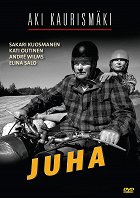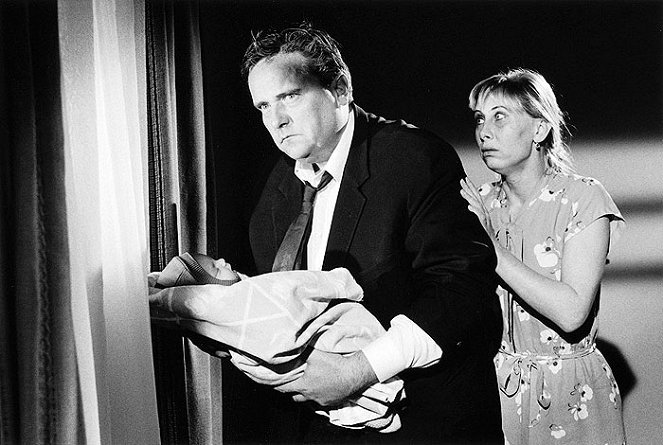Reżyseria:
Aki KaurismäkiScenariusz:
Aki KaurismäkiZdjęcia:
Timo SalminenMuzyka:
Anssi TikanmäkiObsada:
Sakari Kuosmanen, Kati Outinen, André Wilms, Markku Peltola, Elina Salo, Ona Kamu, Outi Mäenpää, Tuire Tuomisto, Tatiana Soloviova, Esko Nikkari (więcej)VOD (1)
Opisy(1)
Juha is a traditional melodrama, where the life of a humble peasant couple is disturbed by a city slick. He seduces the poor wife and brings her to the city, but dumps her in a brothel once she falls pregnant. The synopsis may sound familiar – the film is based on Juhani Aho's classic novel by the same name. The book – written during a period of oppression and thus proposing a political undertone – has been translated into a film before by several directors, including Mauritz Stiller and Nyrki Tapiovaara. However, it seems that Kaurismäki was inspired more by American sob drama, and it's no coincidence that the Casanova drives a Sierck (which most likely is a part of the director's personal collection). (VpM) (Midnight Sun Film Festival)
(więcej)Recenzje (1)
The story is somewhere on the level of calendar moralities about seduced women, wicked bourgeoisie and innocent rural areas from the 19th century (Juhani Ahoa’s book is said to belong to Finnish neo-romanticism), it is all the more beautiful to observe in Aki’s work a kind of strange ruthlessness and toughness which culminates in a cruel final scene. It is a strange shift from pure optimistic naivety to severe pessimism and the alienation of the ending. Juha is beautiful for its symbolic legibility, the exaggeration and the special tension between the archaic ethos of rendering and a purely (still) current topic. By the way, perhaps the most of all the films, the Kaurismäki desexualization stands out here, as if men and women functioned mainly in the category of innocence vs. corruption. Juha thus fits perfectly into Aki's world, only deliberately externally externalizing some previously hidden elements. As in silent films, gestures are not made here for pragmatic reasons, but only for their aesthetic beauty. In this, the viewing experience with Juha is particularly liberating, because it frees us from the need to seek context and social justification for tragic events. It is a narrative for the joy of the narrative. Film for the joy of film. A bitter search for lost purity. Nothing more, nothing less.
()

